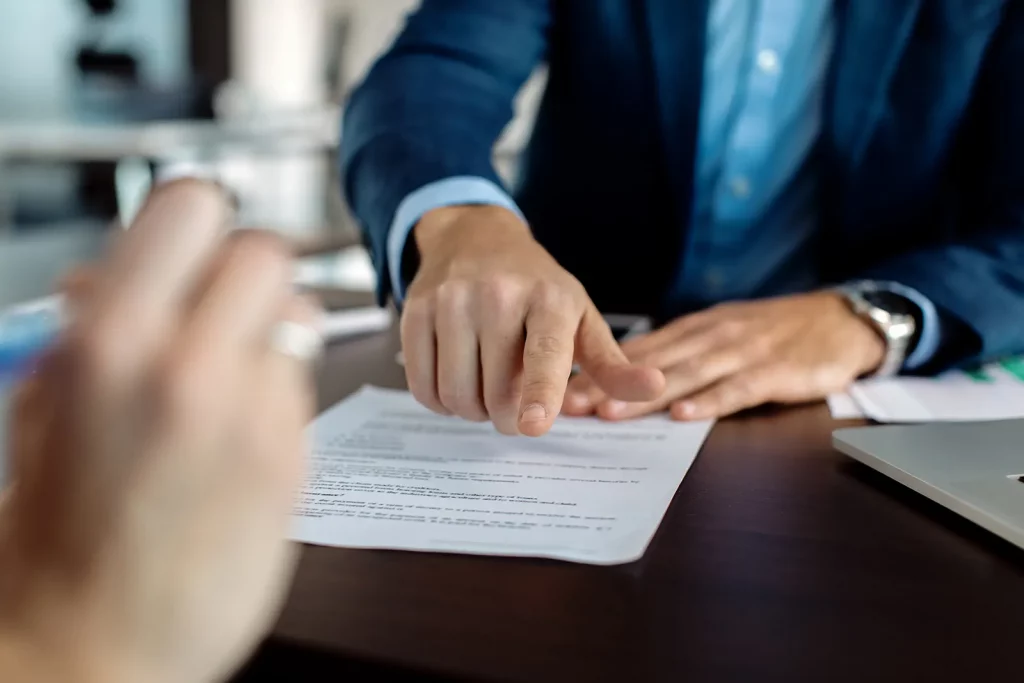What Is a Power of Attorney?
A Power of Attorney (POA) is a legal document that gives another person the right to act on your behalf in legal or financial matters. In other words, it allows someone else to make decisions for you if you cannot do so yourself. A POA can be used for specific tasks like signing documents or making financial transactions, or it can be a broad document granting general authority.
In either case, you must trust the person given the power of attorney to act in your best interest and always in accordance with your wishes. It is important to understand that signing a POA does not mean giving up control over your assets – only that you are entrusting someone else with decision-making in certain areas of your life.
A POA is a very serious document and should be treated as such. Before signing a POA, it is important to consider your reasons for doing so and make sure you are completely comfortable with the person or persons given legal authority. This document should outline in detail what types of decisions can be made on your behalf, including financial, medical, and business matters. You should also consider how far-reaching the authority will be and make sure it is limited to the specific situations you are authorizing.

In addition, make sure that all relevant parties understand their roles and responsibilities, as failure to do so can lead to confusion and misunderstandings. Finally, make sure the POA is filed in accordance with state laws and all parties involved understand how it works and what decisions can be made.
For those who need additional guidance or assistance when deciding whether or not to sign a POA, consulting an attorney is usually recommended. An attorney can provide legal advice and help ensure that all parties understand their rights and obligations regarding the POA. Having a clear understanding of what a POA is, why it is needed, and how it works can help to avoid any potential problems down the road.
The Power of Attorney document should be tailored to your specific needs and circumstances and should be reviewed by all involved parties before being signed. When done properly, a POA can provide peace of mind that your affairs will be taken care of if you become unable to manage them yourself.
In conclusion, signing a Power of Attorney is an important decision that requires careful consideration. It is wise to seek legal advice before signing any document, and to make sure that the POA is tailored to your specific needs. A POA can be a powerful tool for protecting your interests when you cannot do so yourself. With the right guidance, signing a Power of Attorney can help secure financial and medical decisions in the future. By taking the time to do your research and seek legal advice, you can ensure that signing a Power of Attorney is the right decision for you.
Notary Best Practices Power of Attorney
When it comes to best practices for POA documents, the Notary should be familiar with applicable state laws and comply with them. Depending on the type of POA document being notarized, there may be additional requirements, such as having witnesses present or obtaining written consent from all parties involved.
It is important that the Notary take the time to ensure that all signatures are genuine and also take note of any other necessary details. Furthermore, they should ensure that the document is properly filled out and signed in accordance with state law. The Notary should also maintain a record of all documents notarized in their capacity as a Notary.
The NNA (National Notary Association) is a great resource for notaries and those who need to get their documents notarized. The NNA has a great FAQ section on Powers of Attorney, be sure to check it out too as it provides comprehensive answers to many questions related to the process.

This record can be used for reference when any questions arise or when the document needs to be verified or re-notarized. The Notary should also make sure that all documents are properly sealed and signed with their notarial seal.
By following these best practices, the Notary can ensure that documents are handled properly and meet all legal requirements. This helps to prevent any potential issues or problems which could arise from incorrect document handling.
This will help protect both parties involved in the transaction and ensure that the process is conducted smoothly. Furthermore, it will provide peace of mind to all parties involved in a Power of Attorney document.
With proper notarization, these documents can be legally binding and enforceable. Taking the time to follow all best practices for a POA document is essential in order to ensure its validity and enforceability.
With careful consideration and accuracy, the Notary can help to protect all parties involved in a Power of Attorney document. The legal validity and enforceability of a Power of Attorney document is dependent on it being properly notarized. A Notary Public is a public officer authorized by the state to verify signatures, administer oaths and affirmations, witness documents, and perform other related notarial services. By appearing with valid identification before a Notary Public for the purpose of executing a Power of Attorney document or providing an affidavit or sworn statement in support of such document, all parties involved in the document can be assured that their legal rights and duties have been properly established.
This will provide peace of mind and ensure that each transaction is conducted with fairness and legality.
Be sure to check out our article on How to Notary a Power of Attorney if you are looking for more insights.

